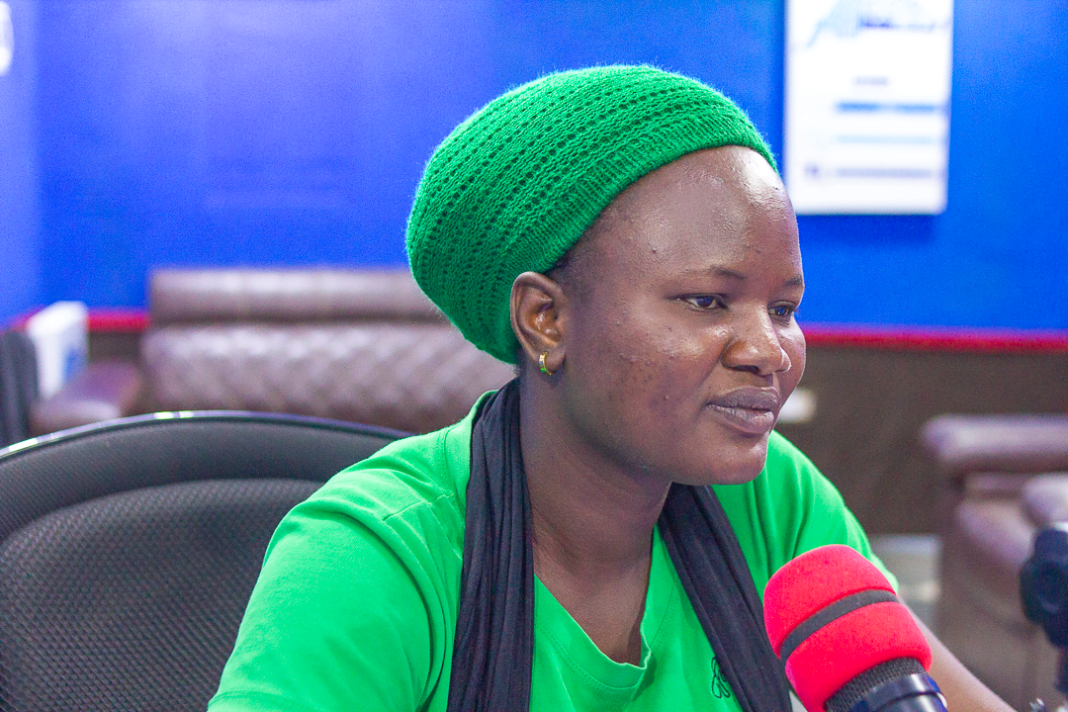Efforts to address menstrual hygiene challenges in rural Ghana are gaining momentum as the Green Africa Youth Organization (GAYO) continues to implement impactful initiatives under its “Menstrual Health in a Changing Climate” campaign—a project focused on advancing menstrual equity while promoting climate adaptation.
In many underserved communities, girls face significant barriers during menstruation, including lack of access to sanitary products, inadequate water, and poor sanitation facilities. These challenges are often compounded by climate change, which disrupts water availability and household stability, further deepening the menstrual hygiene crisis.
“Lack of water access also affects how girls manage their periods. When you are menstruating, you need to wash yourself frequently, so if there’s no water, it becomes a serious problem,” noted Khadijah Azumah Braimah, a representative from GAYO.
Speaking during an interview on A1 Radio, Madam Braimah explained that GAYO, through its ongoing projects, is working to reduce these burdens by integrating menstrual hygiene education with climate resilience training. According to her, the organization has drilled boreholes in the Kandiga community in the Upper East Region to improve access to water—an essential resource for maintaining proper hygiene during menstruation. The boreholes have helped reduce the long distances girls previously traveled to fetch water, especially during critical times.
She emphasized that the organization has also trained youth from selected communities to become ambassadors of change. These young leaders, equipped with knowledge on climate leadership and menstrual health, serve as peer educators and advocates within their communities, promoting awareness and behavior change.
“The training consisted of climate change education, climate leadership, and menstrual hygiene. We trained these youth to become ambassadors in their communities. As peer educators, they are able to lead menstrual hygiene and climate education, becoming champions in their communities.”
Another key intervention by GAYO, Madam Braimah said, is the establishment of an adaptation resource center in Kandiga, where reusable sanitary pads are produced. She explained that the initiative was introduced to support girls who stay out of school due to the unaffordability of single-use pads. The reusable pads offer a sustainable and cost-effective alternative that can last for over a year.
“We implemented the reusable pad initiative because we realized that many girls stay home simply due to lack of sanitary pads. Most cannot afford the single-use ones, so we introduced reusable sanitary pads, which can be used for up to a year or more.”
In addition to menstrual hygiene and water access interventions, GAYO also promotes environmental education through school-based tree planting projects. Pupils are encouraged to take ownership of the trees they plant, fostering environmental stewardship from a young age.
Meanwhile, Madam Braimah emphasized the importance of strong parental guidance in supporting adolescent girls. She advocated for open and trusting relationships between parents and their children—particularly between mothers and daughters—to encourage healthy conversations around menstruation and personal decision-making.
“Our parents should be our friends—especially our mothers. Most girls usually rely on their mothers, so if your mother isn’t your friend, you’ll end up discussing all your problems with your peers, and they might lead you astray.”
With several components of its initiatives already in motion, Madam Braimah highlighted that GAYO remains focused on scaling up its work and finalizing approvals to make reusable sanitary pads widely accessible. These efforts, she noted, are crucial for closing the menstrual health gap and building community resilience amid the growing impacts of climate change.
Source: A1Radioonline.com|101.1Mhz|Gifty Eyram Kudiabor|Bolgatanga


